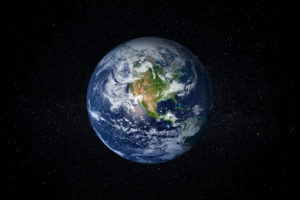Have you ever wondered how plants would grow when they’re not on Earth? In space, growing plants could be important for food, oxygen and even astronauts’ psychological well-being – but growing anything beyond Earth is more difficult than it might seem.
Science departments in Wisconsin have been sending tomatoes, lettuce and cotton into orbit for a few years now. And UW-Madison Professor and botanist Simon Gilroy says there’s plans to use plants to sustain astronauts on long-term missions. But before that, scientists need to know how to do space farming.
Gilroy’s laboratory focuses on how plants sense and respond to their environment and how these signals regulate plant development. What better way to test that out than by removing gravity, Gilroy says. The space station allows scientists to manipulate plants in ways that can’t be done on Earth. His lab looks at these reactions at the cellular level.
“Most of our research is funded through NASA,” he explains. “Most of our research team is made up of students.”
Gilroy also brings to light things that people don’t normally think about when it comes to growing space in zero gravity — when items would be floating around. For example, the plants cannot use soil, cannot be watered with a watering can and needs to be contained before it flowers and releases pollen.


